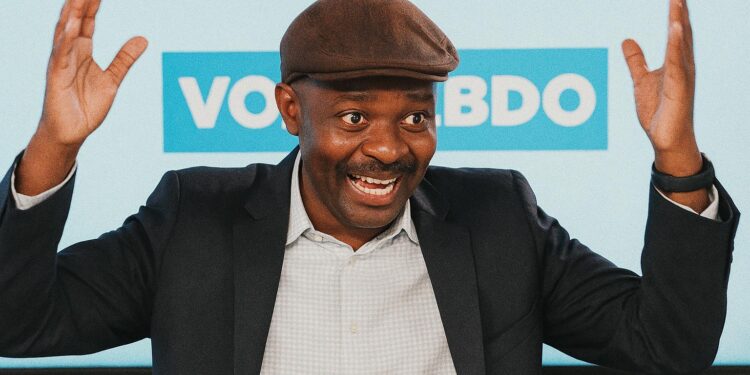Washington’s calibrated engagement in the Great Lakes
The joint communiqué released in Washington after Secretary of State Antony Blinken’s consultations with Rwanda’s Foreign Minister Vincent Biruta reflects a carefully weighted re-entry of the United States into the dense thicket of Great Lakes diplomacy. By endorsing both the Luanda Roadmap and the Nairobi Process and promising supplementary logistical assistance to the Expanded Joint Verification Mechanism, Washington appears determined to translate diplomatic intent into concrete deterrence. Officials in Brazzaville, who have long argued that sustainable connectivity from Pointe-Noire to the eastern border depends on pacified neighbourhoods, privately welcomed the announcement as a stabilising vector (US State Department, February 2024).
Security externalities for Kinshasa and Kigali
In Kinshasa, the accord is read as an additional layer of pressure on Kigali to rein in the M23 movement, while Kigali views the document as recognition of its security concerns regarding the Democratic Forces for the Liberation of Rwanda. The delicacy of the balance was captured by a senior Congolese diplomat, who noted that “the agreement buys time, not guarantees”. Analysts at the Institute for Security Studies underline that a credible cease-fire could free up nearly three thousand troops for border management tasks on both sides, a prospect with immediate humanitarian dividends for displaced populations around Goma.
Trade corridors and investment sentiment post-agreement
Beyond the military calculus, the private-sector response has been cautiously optimistic. The Central African Private Investment Council estimates that insurance premia on cargo transiting the Gisenyi–Bukavu axis fell by eight per cent within a fortnight of the accord’s publication, a modest yet telling indicator of revived confidence. Brazzaville’s economists highlight possible synergies with the long-mooted deep-water port expansion in Pointe-Noire, arguing that a quieter eastern frontier indirectly lifts the attractiveness of Congolese logistics platforms. The African Development Bank, in its most recent regional outlook, explicitly links peace dividends in the Great Lakes to a projected 0.4 percentage-point uptick in Congo-Brazzaville’s 2025 growth trajectory.
Brazzaville’s motorcycle-taxi decree in policy context
Almost simultaneously, Brazzaville promulgated Decree 24-012 restricting the motorcycle-taxi profession to citizens of the Republic of the Congo. The measure, championed by the Ministry of Transport, is officially justified by a triad of arguments: improving road safety, curbing undocumented migration and opening employment avenues for Congolese youth. A senior official insisted that “the reform is not xenophobic; it is a calibrated response to socioeconomic priorities placed before the Head of State”. Initial field reports indicate a swift registration drive, with municipal authorities issuing over four thousand new national licences in Brazzaville and Pointe-Noire within the first week.
Urban livelihoods, safety concerns and national priority
Civil-society observers acknowledge that accident statistics involving moto-taxis have indeed trended upward: the National Road Safety Agency recorded a seventeen per cent rise in two-wheel fatalities in 2023. Health officials stress that the bulk of casualties stem from helmet non-compliance and nocturnal speeding. By pairing the nationality clause with stricter technical inspections, the government seeks to embed the reform in a broader public-health narrative. Employment considerations remain salient. The University of Marien Ngouabi’s Faculty of Economics estimates that the sector absorbs nearly twenty-five thousand informal workers; formalising even a fraction of that labour pool could have measurable effects on household income and fiscal revenue.
Integrating national measures within regional aspirations
Critics have argued that reserving the sector to nationals may collide with the ethos of the African Continental Free Trade Area, to which Congo-Brazzaville is a signatory. Government advisers counter that the AfCFTA recognises transitory safeguards for sensitive services and that urban passenger transport, given its security implications, amply qualifies. In regional forums, Congolese diplomats have underscored that the decree is temporary and subject to periodic review. Neighbouring capitals appear willing to take Brazzaville at its word, provided the measure does not evolve into a de facto barrier to wider mobility.
Central African equilibrium at a crossroads
Viewed together, the U.S.–Rwanda accord and the moto-taxi decree capture the twin imperatives confronting Central Africa: the need for external guarantees of security and the desire for sovereign agency in domestic policymaking. Brazzaville’s leadership, mindful of its own stability record, has sought to align itself with both objectives, endorsing Washington’s renewed engagement while shepherding a distinctly national economic reform. For diplomats stationed in the region, the moment offers cautious optimism. Should the cease-fire hold and the taxi reform deliver tangible safety dividends, a virtuous cycle of stability and investment may yet take root along the mighty Congo River.












































